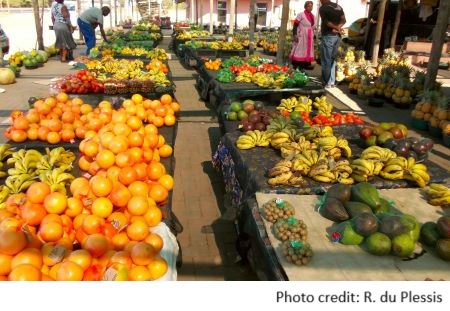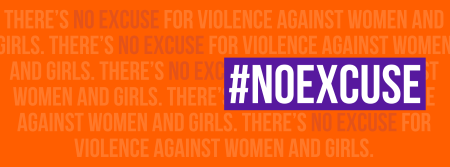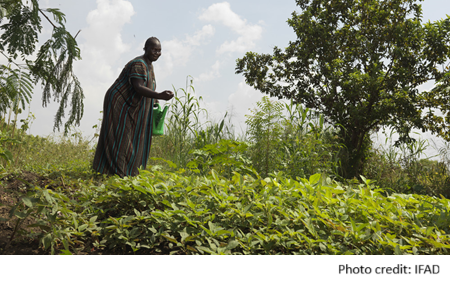The federal government released Budget 2021 yesterday. While there was some investment in international assistance, the Budget falls short in responding to the urgent need of the world's most vulnerable. $375 Million was pledged for international COVID response (part of a $1.4 billion increase in international assistance, spread over five years). We contrast this with the Government’s commitments for 2020-21, which were about $1.2 billion. Budget 2021 investments do not reflect or respond to the dire humanitarian needs around the globe. Two components of international assistance funding, not mentioned in Budget 2021, are global education and international climate finance. We are cautiously optimistic that additional announcements regarding funding commitments for these two GRAN priorities will be made in the near future.
You can read the budget response released by Cooperation Canada by clicking here. If you are on social media, please re-tweet the statement from Cooperation Canada as well as tweets from GRAN.
The success of the new “African Continental Free Trade Area” (AfCFTA), which took effect on January 1, 2021, will depend on the capacity of African governments to tap into the potential of human capital.
With 60% of its population under 25, robust investment in education with emphasis on STEM education, innovation and 21st century skills, must be urgently made for Africa to achieve its goals.
Click here to read more at this GPE blog.
 Education is fundamental to our ability to build back a better world. The COVID-19 pandemic has laid bare the disparities that children and young people face in achieving a quality education. As a result of school closures, this generation of young people may never reach their full personal, education, job and earning potential.
Education is fundamental to our ability to build back a better world. The COVID-19 pandemic has laid bare the disparities that children and young people face in achieving a quality education. As a result of school closures, this generation of young people may never reach their full personal, education, job and earning potential.
Click here to see why the UK sees education as a good investment and is supporting the Global Partnership for Education’s Replenishment.
Will Canada join the UK in its commitment?
GRAN is deeply concerned about the worsening humanitarian crisis in Tigray that is having a disproportionate impact on women and children.
Speaking at the end of his five day visit to Ethiopia, Francesco Rocco, President of the International Federation of the Red Cross and Red Crescent Societies (IFRC), said:
“I am very concerned about the conditions that I saw during my visit, including the internally displaced by the fighting, especially children, their mothers and the elderly. It was clear to me that the people of Tigray need much more support than they are currently getting.”
The international community, including Canada, is urging Ethiopia to grant full access for humanitarian convoys and medical supplies to the region.
Click here to learn more.
In low-income countries, identifying people who have fallen on hard times due to the pandemic is no easy task. So Togo turned to artificial intelligence: a computer program that dives into satellite imagery and cell phone data to pinpoint pockets of poverty and distribute financial support. Click here to read more.
This year’s theme for Canada's International Development Week (Feb 7th-13th) is #GoFortheGoals, referring to the achievement of the 17 Sustainable Development Goals (SDGs) by 2030.
Goal 4, Education for All, has been made vulnerable by the pandemic, with the very real possibility that millions of children may not return to school.
The Global Partnership for Education has developed a series of interviews about the power of education, entitled 5 Reasons for $5+ Billion. Read this inspirational interview with Mohamed Sidibay, former child soldier now peace activist, in which he talks about what education has meant in his life, and speaks compellingly of the importance of supporting increased investments in education globally.
While the world has been focused on the pandemic and COVID vaccine development, over the past year real progress has quietly been made in HIV/AIDS treatment and prevention. A new injectable long-acting HIV/AIDS treatment has been approved for use in Canada, the United States and the European Union. With this breakthrough, a person with HIV can now receive just one injection each month, instead of having to take multiple pills each day to control their disease. While this new treatment regimen is currently priced well beyond the means of developing countries, its development gives hope for future treatment possibilities. Click here to read more.
“It is time to show leadership on protecting the rights of Grandma and other older people. To show appreciation for the enormous contributions that older people make to families, communities and the gross national product. To show intergenerational and international solidarity. To recognize how we love and need our grandparents.” -- GRAN Co-founder Peggy Edwards
Click here to read Peggy Edward’s recent article on the intersection of ageism, COVID-19 and human rights, and the compelling case she makes for a UN Convention on the Rights of Older Persons.
On this National Day of Remembrance and Action on Violence Against Women in Canada, and in support of the UN’s 16 Days of Activism Against Gender-Based Violence, GRAN’s Education Working Group wishes to highlight the impacts of school-related gender-based violence and the measures education systems around the world are taking to prevent and address it.
Read more in this article from the World Education Blog.

Dear GRAN members,
If you haven’t yet registered for this upcoming event, there is still time to do so. Join us for an inspiring conversation with Mama Lambert, a Rwandan genocide survivor of sexual violence, and the human rights advocates who documented her story and those of other survivors.
To view the poster for this online event with further details and bios of the keynote speaker and panelists, please click here.
To register, just click the link below:
https://us02web.zoom.us/webinar/register/WN_qSKOTQ9rRrWVlHBgQRibKw
If you need any assistance with registration, please contact Janet at jlsiddall49@gmail.com
We hope you can join us!
Janet and Pat
Pages



